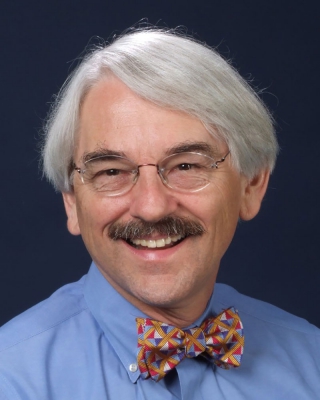
Encouraging More Reading
26 January 2018Reading beyond assigned work broadens students’ knowledge of quality writing.
Dr. Fred Mayo, CHE, CHT
Over the last several months, we discussed a range of ways of conducting demonstrations and providing feedback to students. With this issue and the New Year, we will start a series about reading and writing. This month, we will talk about the value of reading and the role it can play in our students’ education. I will first try and expand our understanding of the reasons for reading.
Value of Reading
As part of a student’s education, they are expected to read the material we assign in order to learn new terms, concepts, and principles that are a basic part of their education. We also encourage students to read assigned materials to expand their professional vocabulary; increase their acquaintance with key culinary procedures, ingredients, and menu items; and prepare for classes.
In this situation, they are reading for content to apply the information in the classroom, professional kitchens, and dining rooms. Since it is a matter of acquiring and demonstrating the information, we often test them for the content by asking questions in class, administering short quizzes, or including relevant questions on examinations.
Fortunately, many of the textbooks are organized with lists of vocabulary words and review questions at the end of chapters and sometimes even problem sets – all of which help students read and review. This ultimately helps them remember what they read. Unfortunately, the textbooks are sometimes poor examples of good writing or well-organized arguments. They tend to follow a model designed to explain ideas and provide support to memorize new information.
Luckily, there are other options for reading and we can encourage our students to engage and explore additional reading categories.
Reading Beyond Assigned Work
Years ago, when I was working with people for whom English was a second language or a difficult language, I used to encourage them to read news magazines like Time. It contained short articles with clear beginnings and interesting endings that made the reader think about the article. The articles were also relatively short – which meant students could read them relatively quickly and in short bursts of free time – while expanding their knowledge on a range of topics. Mostly, however, the articles provided good examples of using evidence to support an idea or point of view, which gave students a sense of focus and logical structure.
Reading magazines, articles in journals, and non-textbooks can also play another significant role in expanding our students’ education. Reading broadly will inevitably expand their vocabulary and demonstrate good writing qualities. It will also provide examples of how to explain a new topic or make a logical argument. Often without being aware, students can improve their critical thinking skills. Encouraging them to read short stories and novels will also provide an awareness of different characters and personalities, which may play a role in helping them manage diverse teams in the future.
Although it may be hard for students to find time for outside reading, the more they can be encouraged to read these materials, the broader their education will be and the more they will develop their critical thinking.
Summary
Encourage your students to read and experiment with various materials to see what captures their interest and see if this habit of reading makes a difference. Next month, we will continue talking about reading and start to discuss writing. If you have suggestions for other topics or teaching practices you want to share, send them to me at This email address is being protected from spambots. You need JavaScript enabled to view it., and I will include them in future Mayo Clinics.
Dr. Fred Mayo, CHE, CHT, is retired as a clinical professor of hotel and tourism management at New York University. As principal of Mayo Consulting Services, he continues to teach around the globe and is a regular presenter at CAFÉ events nationwide.
